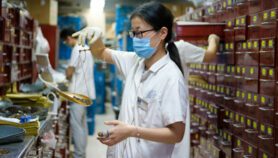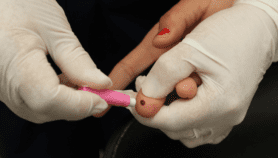By: Gilbert Felongco
Send to a friend
The details you provide on this page will not be used to send unsolicited email, and will not be sold to a 3rd party. See privacy policy.
[MANILA] Low- and middle-income countries (LMICs) have been left out on technology investments in healthcare research due to the huge financial needs and difficulties in sourcing them.
But new investment avenues are being opened to LMICs with the arrival of new concepts on how to source money for healthcare research to make healthcare more accessible, which were presented at the Global Forum on Research and Innovation for Health held in Manila (24-27 August).
“Whoever, wherever you are, you need healthcare. Healthcare is a basic human right,” said Maoi Arroyo, founder of the Philippine biotech group Hybridigm Consulting, during a session on increasing public expenditure on health research and innovation in emerging economies.
The main obstacle to LMICs investing in healthcare is that the national government itself has to shell out the money, which is coupled with the high risk associated with healthcare innovations, products and processes, noted Arroyo.
“It is the role of the technopreneurs to bridge the knowledge gap between the objective of making money and that of helping people.”
By Maoi Arroyo, founder of Hybridigm Consulting
But she said these financing obstacles can be overcome through solutions such as impact investment, crowd sourcing, sourcing finances from “philanthropreneurs” and various incentive-based models, including micro-financing.
“Basically, technopreneurs need to have access to investors. Businessmen will not invest when they know they won’t make money and this is where the technopreneurs come in,” Arroyo also tells SciDev.Net in an interview.
“It is the role of the technopreneurs to bridge the knowledge gap between the objective of making money and that of helping people,” she says.
She notes that solutions such as crowdfunding and technopreneurship offer a “win-win solution” to difficulties encountered in research.
“Science gets the funding at the same time the businessmen make their money,” Arroyo explains.
So how does technopreneurship and crowd funding mix with development?
Arroyo says that in the case of her firm, Hybridigm Consulting , they scale their impact on how many jobs they are able to provide to people.
“Social entrepreneurs want to make money but also at the same time want to make social impact. For example, one metric that we use for that is the number of jobs created or how close we have come to achieving our objective for healthcare like eradicating dengue,” she says.
Ryan Bethencourt, co-founder of Berkeley Biolabs, United States, says biotechnology responds to real world concerns such as food security and medical research.
A scientist, Bethencourt is also an entrepreneur and has investments in biotech activities in the US and Ireland.
This article has been produced by SciDev.Net's South-East Asia & Pacific desk.














